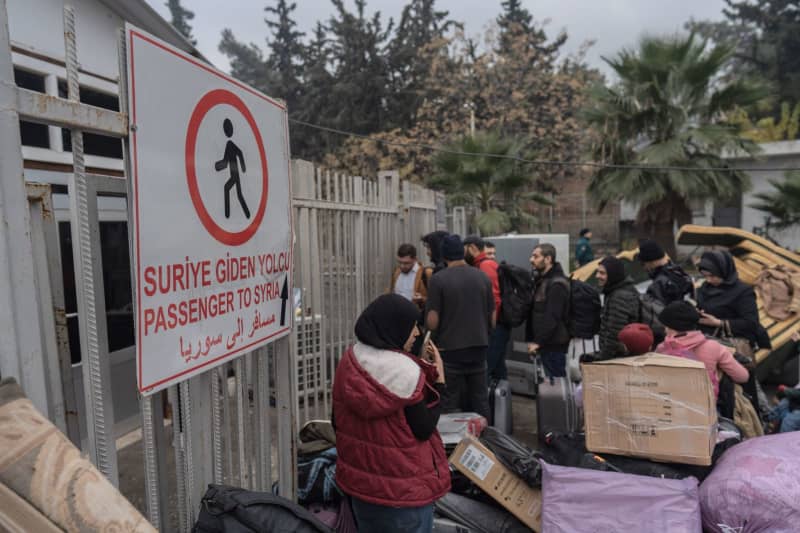Following the recent overthrow of long-time Syrian President Bashar al-Assad, Turkey has seen a significant influx of refugees returning to Syria, with reports indicating over 7,500 individuals have crossed the border. Turkish Interior Minister Ali Yerlikaya highlighted that this resurgence of returnees has been particularly notable since the regime change. From Monday to Friday alone, more than 1,000 Syrians were reported to cross the border daily, with preliminary movements already occurring in early December. The United Nations High Commissioner for Refugees (UNHCR) corroborated Yerlikaya’s claims, documenting around 3,000 returnees by Friday at the Turkish-Syrian border.
Turkey has hosted a substantial number of Syrian refugees over the course of the ongoing civil war, which began in 2011. Currently, estimates indicate approximately 3 million Syrians reside within Turkey’s borders, making it the country that has taken in the most refugees. However, a significant aspect of the ongoing return narrative is that individuals who decide to re-enter Syria will forfeit their legal right to remain in Turkey. The UNHCR reports that, overall, Syria has produced around 4.8 million refugees, with neighboring countries such as Lebanon, Jordan, Iraq, and Egypt also accommodating considerable numbers.
The growing number of returnees has occurred amidst increasing domestic pressure on President Recep Tayyip Erdoğan regarding the foreign refugee population in Turkey. Many citizens have expressed concerns about the implications of hosting such a substantial number of refugees, prompting Erdoğan to advocate for the voluntary repatriation of Syrians. The government seems to favor policies that promote the idea of returning home, especially now that a political shift has opened the door for many to reconsider their options.
Despite this call for returns, experts like Murat Erdoğan, a Turkish migration specialist, suggest that many Syrian refugees may opt to remain in Turkey. He argues that the dire economic and security conditions prevailing in Syria will deter most from returning, as many have established new lives over their years of exile. Consequently, the sentiment among the refugee population indicates a preference for stability over the uncertainty that might accompany a return to their homeland.
The continued flow of refugees seeking to cross back into Syria illustrates a complex interplay of personal choice and broader socio-political factors influencing those decisions. On one side, there are the practical considerations of life in exile—economic opportunities and community ties formed in Turkey. On the other, there are the emotional factors surrounding a return to a conflict-ridden homeland now experiencing a significant regime change. Many refugees may weigh the perceived risks and benefits of returning against their current lives in Turkey.
As the situation evolves, the demographic landscape of Turkey may shift with these returns, affecting various social, economic, and political dynamics. The long-term effects of mass repatriation could reshape relationships between the Turkish government and both the returning populations and those remaining. This ongoing transition underscores the complexities surrounding migration policies in the face of humanitarian crises, geopolitical shifts, and the realities faced by displaced populations.

